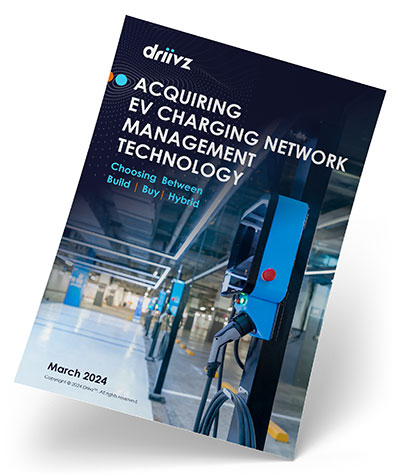The electric vehicle (EV) marketplace is on the cusp of tremendous expansion. At the leading edge are EVs themselves, with predictions calling for 77 million passenger EVs on the road by 2025. More EVs will, in turn, drive exponential growth across the EV charging ecosystem:
- In the millions today, EV drivers will number in the tens of millions, with increasingly higher expectations for a seamless charging experience
- The number of chargers will grow from hundreds of thousands to millions to meet demand, requiring an investment of up to $180 billion until 2030 just to build charging stations
- Transactions and events, including billing and payments, will exceed hundreds of billions
As EV charging network operators expand their businesses, through both organic growth and an accelerating rate of mergers and acquisitions, we will see increases in cross-border operations and the need for more complex and numerous roaming interfaces. Those mergers and acquisitions will need EV charging management systems that can handle complex integrations and support multiple operating units and business models. All this increased demand will have a significant impact on the grid and the entire energy value chain and will require sophisticated energy management capabilities.

Challenges to Scaling EV Charging Business Growth
Given the opportunities for business growth presented by this marketplace, EV charging network operators need to understand the various challenges that may be ahead. Questions to ask include:
- Can your current IT infrastructure and EV charging management software scale effectively to handle more drivers, chargers, and transactions? This question covers a range of factors, from software architecture scalability and flexibility, to availability of skilled personnel to add advanced capabilities.
- Are you limited by a current EV charging management system vendor’s capabilities? Will they be able to meet your growing demands and meet your needs for on-time delivery of features and resources?
- If your growth plans call for mergers and acquisitions, are you prepared to address the associated financial, legal, and operational challenges? Can you embed new operating units into your EV charging management platform?
- Can your path to growth deliver economies of scale through technology sophistication and automation? If not, increasing costs can impact profitability.
- And can your existing solutions do all this and meet your needs for speed to market?
The Role of a Digital Services Platform
A digital services platform provides end-to-end, modular capabilities and advanced technologies that enable an EV charging network operator to:
- Manage operations at scale, from the chargers and their availability to billing, roaming, customer management, and driver management
- Meet the needs of their business customers and their varying vertical business models, including retailers, gas stations, hosts, municipalities, automakers and dealerships, EV fleets, commercial and industrial property owners, and multi-dwelling units
- Provide tools for and deliver an exceptional charging experience to EV drivers wherever they charge
- Support industry protocols standards and interconnect with other networks and roaming platforms
- Manage energy for EV smart charging at the charger and across sites or campuses, including managing local microgrids, to address site-level power limitations and optimize charging for spot pricing, time-of-use pricing, demand-supply, and flexibility markets
- Integrate with customer applications such as loyalty programs, operator-developed applications for business operations, and legacy systems and interfaces
- Scale seamlessly to support organic growth, mergers, and acquisitions
Critical Points to Look for in a Digital Services Platform
When evaluating digital services providers in the marketplace, here are some differentiators to look for across technology, functionality, and implementation.
Technology requirements include a scalable software platform, technology-enabled operational excellence capabilities like self-healing algorithms to automatically address charger issues, API-based integrations, robust security, and use of artificial intelligence for predictive maintenance, energy management and other applications.
Functionality differentiators include full EV charging ecosystem support, a proven seamless driver experience, smart energy management, broad support for roaming platforms and integrations, and support for multiple business models.
Just as important is how the provider does business with you and implements services. Look for proven processes and documented, repeatable methodologies for software and service implementation, onboarding, migration, and ongoing support. Ask about service level agreements (SLAs). And look for extensive use of standardization and automation, because both are essential to enabling the kind of scalability successful EV charging network operators will need to thrive in today’s hyper-growth marketplace.





